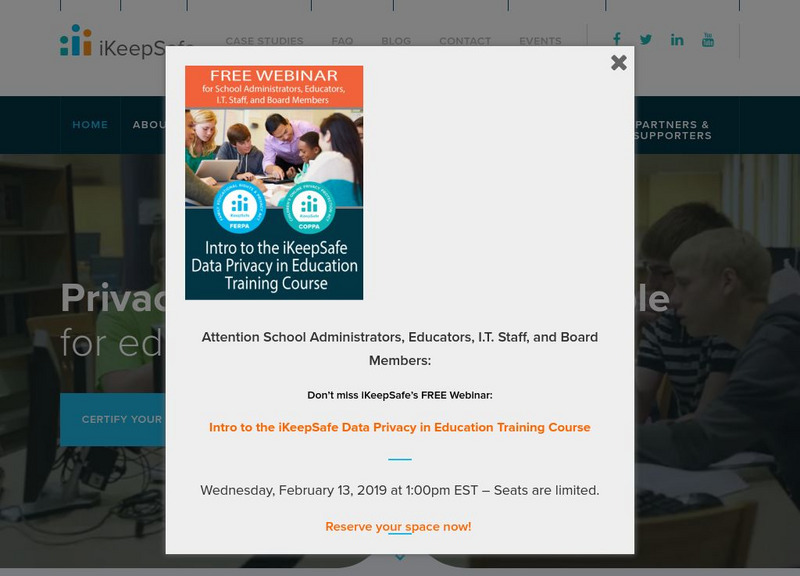Curated OER
Chocolate Asphalt Cookies
Students make no-bake cookies to learn basic engineering principles, road construction and material science. They experience properties and changes in matter.
Curated OER
Will the Lights Go Out?
High schoolers diagram nuclear power plant, describe process for generating electrical power, discuss nuclear disasters in the 20th century, and draw conclusion about value of nuclear power for the future.
Curated OER
Signaling: merit badge
In this signaling worksheet, learners use their workbook to answer short answer questions about different ways to send and receive messages. Students complete 6 questions total to get their merit badge.
Curated OER
Tracking: merit badge
In this tracking worksheet, students fill out short answer questions using their workbook about finding tracks of animals in order to get a merit badge. Students complete 5 questions total.
Curated OER
TOXIC TECHNOLOGY
Students examine what they already know about computer recycling and cconsider how computer recycling is contributing to a global toxic waste problem by reading and discussing the article, ""Poor Nations are Littered With Old PC's,...
Curated OER
Safe Cyberpals
Learners compare cyberpals and face to face friends. They explain that a cyberpal is still a stranger. They recall that private information should not be given to anyone in cyberspace without permission of a parent of teacher. Students...
Curated OER
Transmission of Disease
Learners provide names of viral diseases that they would possibly like to be infected with today; listing them on the Smart Board. They then come to an agreement about what virus to use and use beakers of fluids to simulate how viruses...
Curated OER
Periodic Table & Its Trends-Day 6
Students intergrate science, technology and society into exploring the periodic table. They investigate one element of their choice and write a one page paper on the elements discovery, properties, uses, and the effect on society.
Curated OER
Animal Kingdom: Phylum Chordata
Students use a dichotomous key to classify various vertebrate jar speciments into classes. They examine the speciments for general characteristics of each class and fill in a corresponding chart and then complete a few final assessment...
Curated OER
Exploring Ecology
Students explore the basics of ecology through numerous hands-on and relevant activities. They participate in an online food chain demonstration, which explores food web dynamics. They dissect owl pellets, examine the prey's bones, and...
Curated OER
The Fungus Among Us
Students explore the basic characteristics and roles of fungi. They discuss the importance of fungi to humans. Students investigate the relationship between cell structure and function and explore the diversity and variation of...
Curated OER
What is Temperature and How Is It Measured?
Students complete activities to measure temperature. In this temperature lesson, students read Geoffrey Groundhog Predicts the Weather and make a KWL chart about predicting weather. Students discuss folklore about temperature and learn...
Curated OER
ESL Holiday Lessons: Data Protection Day
In this language skills instructional activity, students read an article about Data Protection Day. Students respond to 6 matching questions, 29 fill in the blank questions, 30 multiple choice questions, 12 word scramble ...
Curated OER
Is Seeing Believing...Or Decieving
Seventh graders investigate media protrayal of railroad trespassing incidents. They write a legal action letter against one of the media companies.
Curated OER
Horsepower: Harnessed for War
Students explore the technology of war. In this war technology lesson, students research the fighting styles of the Vikings, the Normans, and Medieval Knights.
Curated OER
Harvest of Fear
Students research and debate the pros and cons of genetically altered foods. Students discuss whether they would be willing to eat genetically modified foods and whether these foods should be allowed to be created.
Other
I Keep Safe Internet Safety Coalition
With sections for students, for parents and for educators, this site addresses internet safety issues on appropriate levels and in interesting formats for all three audiences. Children can read books, play games or watch videos starring...
Childnet
Childnet: Online Safety: Staff Led Online Safety Inset Presentation
Online safety is a whole community issue and this presentation is suitable for every staff member to attend. To deliver this INSET presentation, print and read the delivery instructions in advance and familiarize yourself with the...
Childnet
Childnet: Online Safety: Staff Led Parent Online Safety Presentation
Online safety is a whole community issue and this presentation is designed to improve parents' knowledge and understanding of the risks their child may face online. It also provides practical strategies and advice to help parents support...
Childnet
Childnet: Online Safety Activities You Can Do From Home
During remote learning, young people will be spending more time at home than usual -- with their families, and on devices. We have put together a list of resources that you can use with them, to explore online safety in a fun, engaging,...
Childnet
Childnet: Online Safety: Pshe Toolkits for Ages 11 14
This is a set of practical online safety PSHE toolkits to explore online issues, including links to Relationships, Sex and Health Education (RSHE), with pupils aged 11-14 years old. Crossing the Line covers the topics of cyberbullying,...
Childnet
Childnet: Online Safety Posters
Here is a collection of our Online Safety posters all available to download in A3 for free. The posters cover a range of issues and are for children of various age groups: 3-6, 7-11, and 11+.
Childnet
Childnet: Online Safety: Need Help?
This site offers links to resources for people who need help with online issues. These include "I am under 12", "I am between 12 and 18", and "I am a Parent or Carer."
Childnet
Childnet: Online Safety: Home Learning
Recently, you may have had to do a lot of your schoolwork or learning at home, using technology during lock-downs or when self-isolating. This can be called home learning, e-learning or remote learning and might refer to work set over...

















